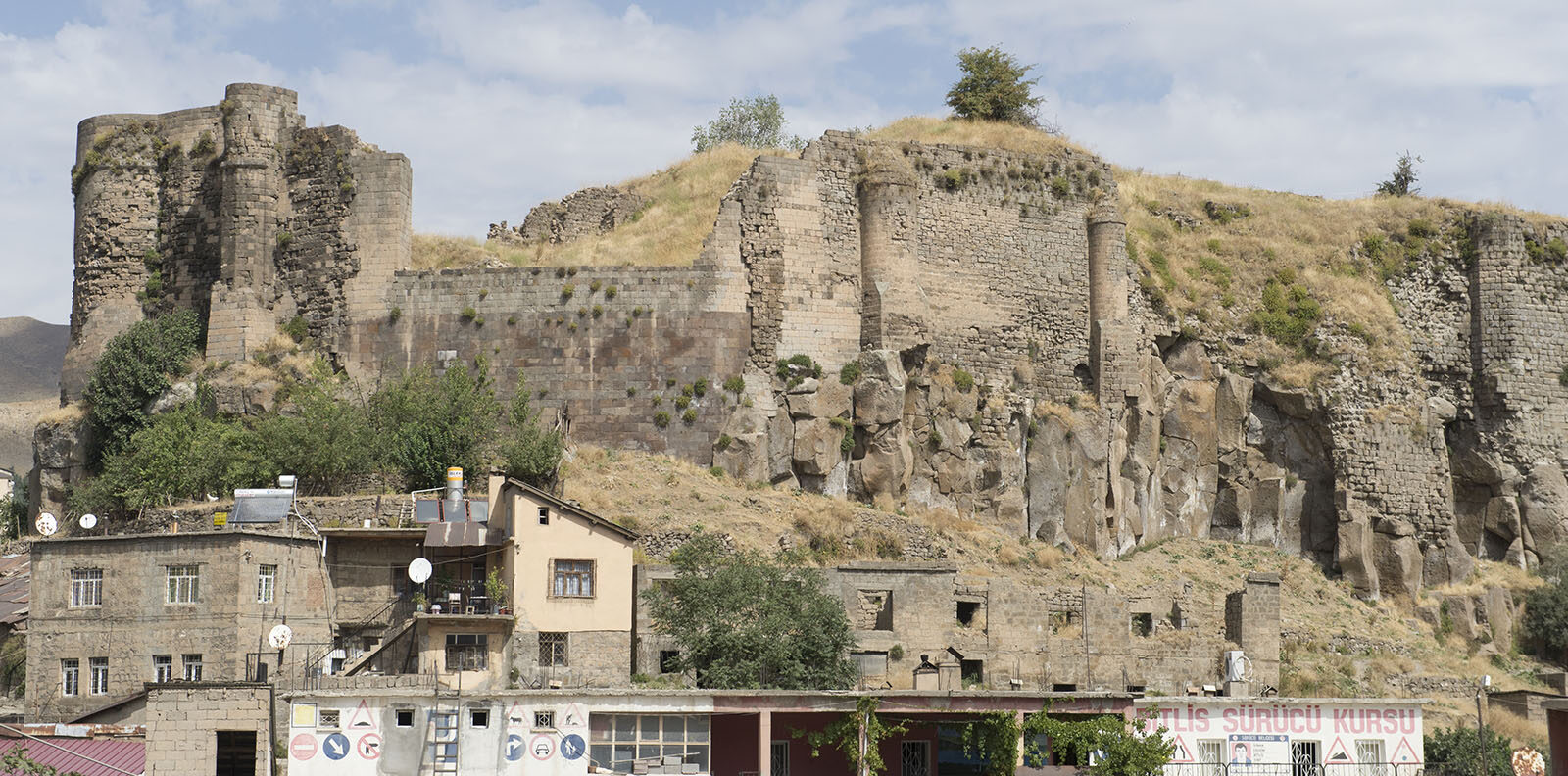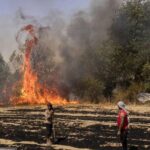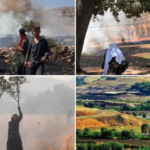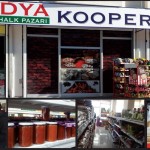
Bitlis (Armenian: Բաղեշ Baghesh/Paghesh; Kurdish: Bidlîs; Ottoman Turkish: بتليس) is a city in eastern Turkey / North Kurdistan and the capital of Bitlis Province, 15 km from Lake Van, in the steep-sided valley of the Bitlis River, a tributary of the Tigris.
The local economy is mainly based on agricultural products which include fruits, grain and tobacco. Industry is fairly limited, and deals mainly with leatherworking, manufacture of tobacco products as well as weaving and dyeing of coarse cloth.
Bitlis historically produced wheat, which the British, in 1920, described as being “particularly excellent.” However, poor trade routes in the area during the early 20th century meant that the wheat was mainly produced and used by locals. During this time, the British stated that the people of Bitlis were unable to use all of the wheat they produced, and most was “left to rot in the underground storehouses.”
Historically, Bitlis was one of the most important cities of the Kingdom of Armenia’s province of Aghdznik’. The Armenian name was Balalesa or Baghaghesh, and later Baghesh. A third of the population was Armenian prior to World War I. During the Armenian genocide, around 15,000 Armenians were massacred in Bitlis.

In the context of Kurdistan, ecocide is launched not only for looting resources, but also for the sake of destruction of any kind of resistance, in ignorance of the complexity of relations of different life forms that make life itself possible.

In the summer of 2023, Mount Cudi is once again the site of significant wildfires, marking a recurring environmental challenge that has profound implications for the region which is an important part of the Kurdish geography. This event brings to the forefront an interview with Zozan Pehlivan, an environmental historian of the modern Middle East, the Ottoman Empire, and Ottoman Kurdistan, conducted in 2020, now translated into English by MedyaNews, that explores the intricate connections between ecology, economy, and history in Turkey, Kurdistan and beyond.
Shoemaking was a traditional craft of Armenian masters in Amed. In the capitalist throwaway society, the profession is dying out. Kasım Oğuç is one of the last shoemakers in the Kurdish metropolis.

Opposed to the economy controlled by the state and corporations, the number of cooperatives where relations of production and consumption are formed without intermediaries is on the rise. Recently, these cooperatives have begun to emerge in Kurdistan, as a reflection of the operation of an economy independent from the state and corporations. Below we share the interview we carried out with one of these co-operatives, the Medya Consumers’ Cooperative (Medya Tüketim Kooperatifi), at their market in Wan.




